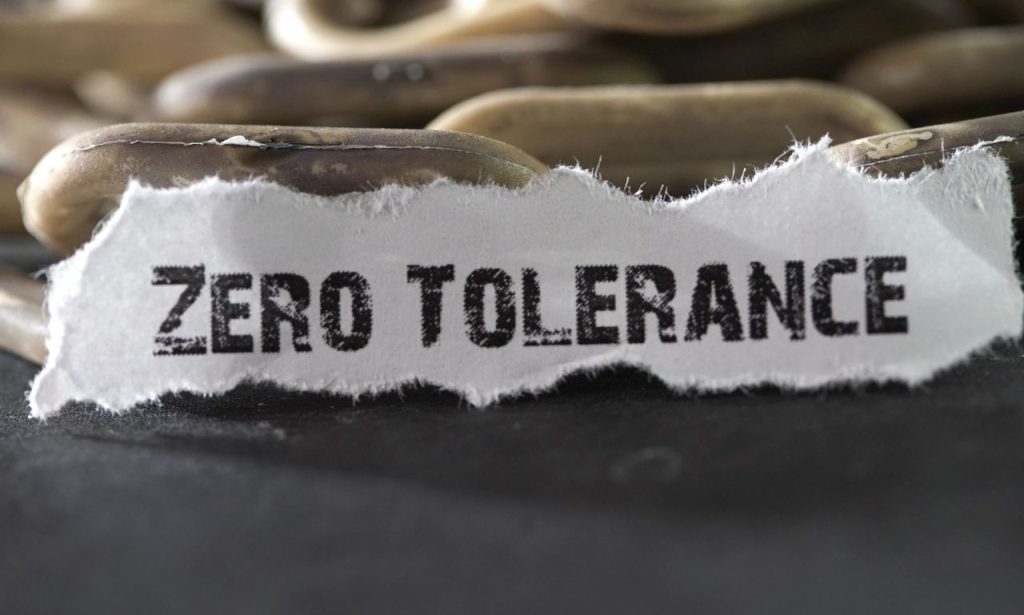If you’ve ever asked yourself, Why do schools never punish bullies?, you’re not alone. Despite countless policies, initiatives, and promises to address bullying, it often seems like bullies continue their behavior unchecked, while their victims suffer silently. The issue of bullying in schools is pervasive, and the question remains: why do schools never effectively punish bullies? Is it due to systemic inadequacies, the nature of bullying itself, or perhaps even underlying assumptions about what drives such behavior?
To answer this question, we need to look beyond the surface and explore why schools struggle to address bullying behavior in meaningful ways. As we delve into the reasons why schools never punish bullies, it becomes evident that the issue is multifaceted, involving challenges within administration, limited resources, systemic inefficiencies, and deeply embedded social dynamics. Schools must consider not just punitive measures but also comprehensive, supportive approaches to prevent bullying incidents and create a safer school environment.
Challenges in Addressing Bullying in Schools

To understand why schools never punish bullies effectively, it is crucial to first consider the systemic challenges faced by school administrators and teachers. Schools are part of a larger system that includes parents, students, teachers, policymakers, and the community. Therefore, handling bullying behavior involves multiple stakeholders, each with their own interests, limitations, and varying levels of understanding regarding the issue.
The typical school policy often emphasizes punishment, but the reality of addressing bullying is far more complex. It requires identifying bullying situations in their early stages, addressing the underlying causes, and creating an inclusive, positive school culture that discourages bullying behaviors. Unfortunately, many schools fall short of this, focusing instead on punitive actions that only address the symptoms of the problem, rather than the root cause.
The Nature of Bullying and Its Impact
One of the reasons why schools never effectively punish bullies is the cyclical nature of bullying behavior. The cycle of bullying involves various participants: the bully, the victim, bystanders, and school staff. Each of these groups plays a role in perpetuating or preventing bullying incidents. When bullying incidents occur, victims often endure harm from multiple sources—the bully’s actions, the silence of bystanders, and the inadequacy of the school’s response. Many victims of bullying feel that the school staff does not adequately intervene, leading to a lack of trust in the school system. This contributes to a culture where the bullying behavior remains unchecked.
In addition, many bullies come from troubled home environments, where they may be experiencing neglect or abuse. These underlying challenges contribute to their aggressive behavior at school. Victims of bullying may also be dealing with personal vulnerabilities, such as mental illness or family issues, making it difficult for them to defend themselves. Schools that fail to recognize the complex nature of bullying and the various underlying causes are often unable to provide an effective solution.
Fear of Retaliation and the Silence It Breeds
Another reason why schools never punish bullies effectively is the fear of retaliation. Victims of bullying and even bystanders are often scared to report bullying incidents. Fear of further bullying or social exclusion discourages victims from seeking help. Unfortunately, this fear extends to teachers and school staff as well. Some teachers may be concerned about intervening in bullying situations due to fear of escalating the situation, complaints from parents, or administrative repercussions. This fear fosters an environment where reporting seems futile and dangerous, allowing bullies to thrive.
In some cases, victims may choose to report bullying incidents anonymously, but anonymity is not always enough to protect them from repercussions. Bullies may easily figure out who reported them, leading to even more intense harassment. This vicious cycle leaves victims feeling helpless, and in many cases, they simply stop trying to seek support. The problem of bullying is compounded when schools do not take decisive and effective action in response to reports, reinforcing the belief that “nothing will change.” This lack of intervention is one of the key reasons why schools never adequately punish bullies.
The Myth of Zero Tolerance Policies

A major misconception in addressing bullying is the effectiveness of zero tolerance policies. These policies promise harsh punishment for bullying behavior and may seem like a firm solution on paper. However, in practice, zero tolerance policies are often rigid and poorly implemented, which can result in unintended consequences.
What Zero Tolerance Policies Entail
Zero tolerance policies are designed to signal that bullying in schools will not be tolerated under any circumstances. The idea is that by imposing strict and non-negotiable punishment, bullies will be deterred from engaging in such behavior. On the surface, zero tolerance policies seem like an appropriate solution to prevent bullying incidents, but the actual implementation often falls short of this ideal.
Reasons for Ineffectiveness
Zero tolerance policies are ineffective because they do not account for the varying nature of bullying situations. Not all bullying incidents are the same; some are verbal, some are physical, and others may involve social manipulation or exclusion. A rigid policy that treats every instance of bullying as identical fails to address the nuanced social dynamics involved. For example, a student defending themselves may receive the same punishment as the bully, which creates a sense of injustice.
Furthermore, these policies can deter victims and bystanders from coming forward. Students may hesitate to report a bullying incident, knowing that the bully will receive a harsh punishment, especially if the situation is complex or involves friends. Instead of fostering a safe environment, zero tolerance policies often promote a culture of fear, where students keep silent rather than seeking help. This is a critical reason why schools never successfully punish bullies using these policies.
The Impact on Victims of Bullying
When schools fail to address bullying effectively, the effects on victims can be devastating. Victims of bullying often experience severe emotional and psychological distress, which can lead to long-term mental health issues such as anxiety, depression, and suicidal ideation. The lack of support from the school can leave victims feeling isolated and powerless, exacerbating the harm caused by the bullying itself.
Moreover, the impact of bullying on academic performance is significant. Victims may have trouble focusing in class, avoid attending school altogether, or disengage from school activities. The long-term consequences of bullying can affect not only their academic status but also their overall well-being and ability to form healthy relationships later in life. Schools that fail to effectively address bullying are indirectly allowing these harmful impacts to persist, which is why it is crucial to develop comprehensive anti-bullying programs.
The Need for a Comprehensive Anti-Bullying Approach
If zero tolerance policies are insufficient, then what can schools do to create real change? The answer lies in adopting a comprehensive approach to bullying prevention that emphasizes education, prevention, and support rather than simply focusing on punitive measures. Understanding why schools never punish bullies is crucial for reforming current strategies and implementing effective bullying prevention programs.
Prevention Through Education and Awareness
One of the most promising approaches to addressing bullying is through prevention programs that educate students about empathy, respect, and conflict resolution. These programs should be evidence-based and involve both students and teachers in creating a positive school culture. When students understand the impact of bullying on victims, they are more likely to develop empathy and take action to stop bullying when they witness it.
Bullying prevention programs should also include comprehensive training for school staff on recognizing and responding to bullying situations. Teachers must be equipped to identify early warning signs, such as relational aggression or exclusionary practices, and take appropriate steps to intervene before the situation escalates. School staff must also be able to foster a supportive environment where students feel comfortable reporting incidents without fear of retaliation.
Empowering Bystanders to Act

Bystanders have the power to either perpetuate or stop bullying behavior. When bystanders choose to stay silent, they give power to the bully, reinforcing their actions. However, if bystanders are educated and empowered to intervene or report bullying, they can help stop the cycle. Schools must encourage bystanders to take action by providing anonymous reporting mechanisms, recognizing students who stand up for their peers, and promoting a culture that values courage and solidarity.
Collaboration with Parents and Community Resources
Why do schools never punish bullies effectively without involving parents and the community? The answer lies in the fact that schools cannot tackle the issue of bullying alone. Parental involvement is crucial in understanding the root causes of bullying and addressing them effectively. Schools must work closely with parents, keeping them informed of any incidents and encouraging them to be active participants in anti-bullying efforts.
In addition, schools should take advantage of community resources, such as local mental health services and non-profit organizations, to support victims and bullies. These resources can provide counseling, workshops, and additional support that schools may not have the capacity to offer. A coordinated approach between schools, parents, and community organizations ensures that all stakeholders are working together to create a safe environment for students.
Counseling and Support for Victims and Bullies
Victims of bullying require access to counseling and mental health services to help them heal from their experiences. School counselors can provide support, but it is often necessary to bring in outside professionals to help victims process their trauma and build resilience. Counseling helps victims regain their sense of self-worth, learn coping mechanisms, and develop healthy ways to interact with peers.
Similarly, bullies themselves may benefit from counseling and support. Understanding why some students become bullies is essential to addressing the root causes of their behavior. Many bullies have experienced some form of emotional neglect or have crap home lives that contribute to their aggressive behavior. Providing these students with counseling can help them learn healthier ways to express their emotions and interact with others.
Creating a Positive School Culture
The ultimate goal of any anti-bullying initiative should be to create a positive school culture where bullying behavior is not tolerated, and all students feel safe. This means moving away from punitive, exclusionary practices and instead fostering a supportive environment that promotes growth and learning. Restorative justice practices can be an effective tool in achieving this goal. Instead of focusing solely on punishment, restorative justice emphasizes accountability, making amends, and reintegrating students into the school community in a positive way.
Schools must also focus on creating a culture of inclusion and respect for diversity. Many instances of bullying are related to differences, such as sexual orientation, gender identity, or social status. Schools that actively promote inclusion and celebrate diversity can reduce the incidence of bullying and create a more accepting environment for all students.
Conclusion
The question of why schools never punish bullies effectively is not a simple one, and the answer is complex. It involves understanding the systemic challenges schools face, the limitations of zero tolerance policies, and the need for a more comprehensive approach to bullying prevention. Schools must move beyond merely punitive measures and work towards building a culture that discourages bullying behavior while supporting both victims and bullies in meaningful ways.
A multifaceted approach that includes education, prevention, counseling, and community involvement is essential for creating a safe and positive school environment. When all stakeholders—students, teachers, parents, and community members—are actively engaged in anti-bullying initiatives, meaningful change is possible. Schools must prioritize comprehensive anti-bullying programs that address the root causes of bullying and foster a culture of respect, inclusion, and support for all students.
Also Read: The Best Homeschool Curriculum For Working Parents
FAQs
Parents should maintain open communication with their child, offer emotional support, and work closely with the school to address the situation. Seeking professional counseling may also be beneficial.
Bystanders can either perpetuate or prevent bullying. Encouraging them to speak up or intervene can significantly reduce bullying incidents.
Yes, comprehensive anti-bullying programs focusing on prevention, education, and support are more effective than zero tolerance policies. These programs involve the entire school community and address the root causes of bullying.
Fear of retaliation, lack of trust in the school’s response, and the belief that nothing will change are common reasons why students don’t report bullying.
Yes, with the right support and intervention, bullies can learn healthier ways to express themselves and change their behavior. Counseling and behavioral support are effective means of helping them make positive changes.
